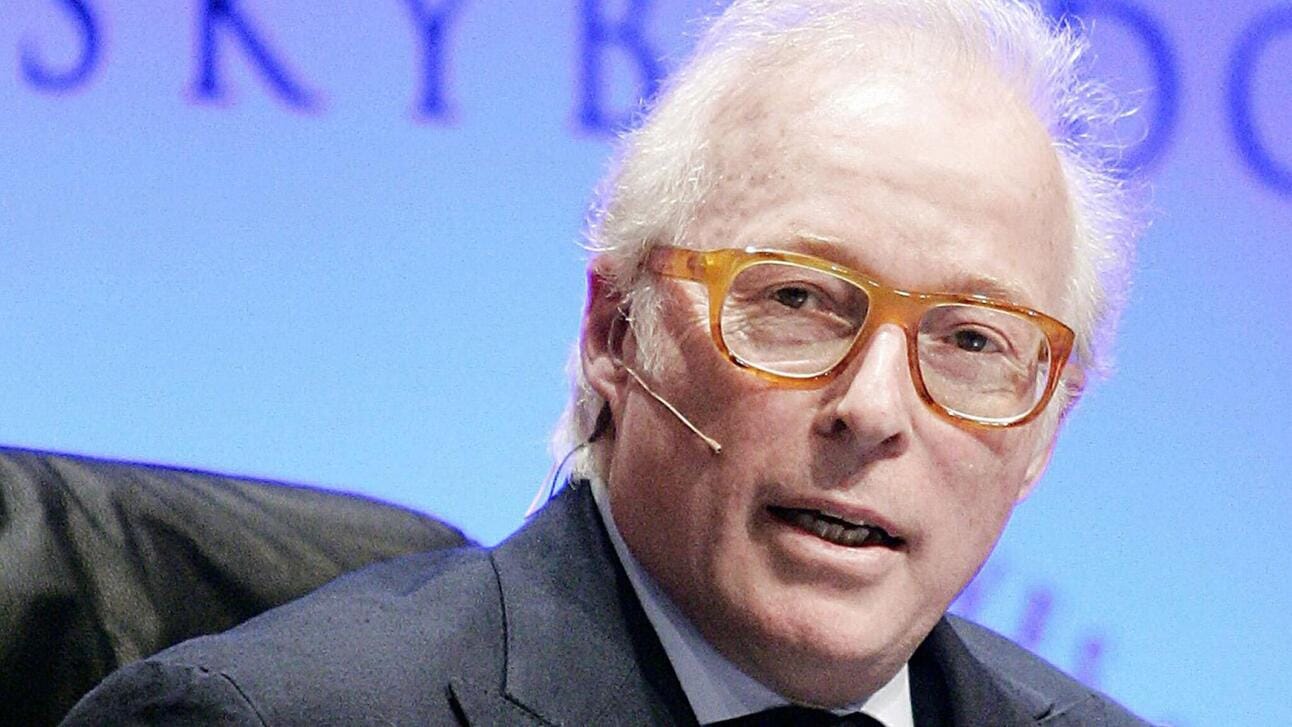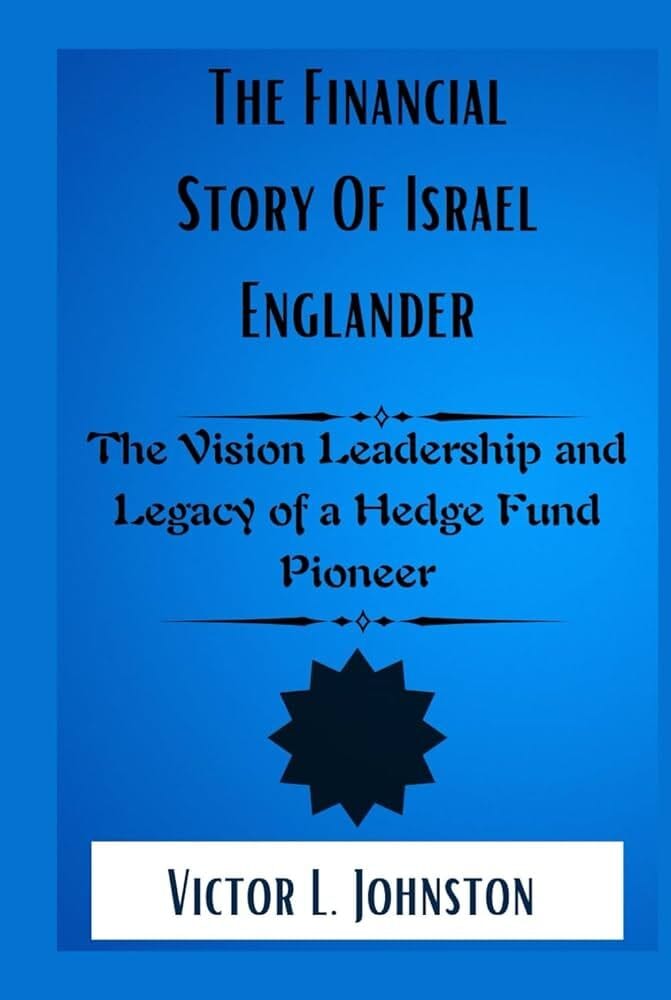- The Weekly Mensch
- Posts
- The Weekly Mensch: Izzy Englander
The Weekly Mensch: Izzy Englander
The precision of risk, the power of people, and the art of staying ahead
Us in a Nutshell
We are passionate about the lives, the impact, and the experience of Jewish baby boomers who have changed our world. From finance to the arts, we write about the stories of contemporary heroes who — significantly and meaningfully — changed the face of their respective industries, often starting with nothing but a legacy of exile. We tell their stories for the timeless lessons of intelligence, ethics, and resilience they underline. And we also share some fun anecdotes! Nathan Tob is a fourth-year student at the Queen Mary University of London. He studies Economics, Finance, and Management. Davy Sokolski is a third-year student at Columbia University in New York. He studies International Political Economy.
What is a Mensch?
Leo Rosten defines mensch as “someone to admire and emulate, someone of noble character.” Dr. Saul Levine writes in Psychology Today that a mensch’s personality characteristics include decency, wisdom, kindness, honesty, trustworthiness, respect, benevolence, compassion, and altruism.
Izzy’s Rapid Bio

Credit: Bloomberg
Israel "Izzy" Englander, born in 1948 in Brooklyn, New York, to Polish-Jewish immigrant parents, grew up in a household that deeply valued resilience, ambition, and faith. His parents were Holocaust survivors, and their experiences instilled in him a strong work ethic and a relentless drive to succeed. Englander’s early interest in the stock market began in high school, where he spent hours tracking stock movements and studying investment strategies. This passion led him to attend NYU, where he earned a degree in finance.
Englander started his career at Oppenheimer & Co. before launching his own firm in 1977. However, his defining moment came in 1989, when he co-founded Millennium Management with $35 million. Under his leadership, Millennium became one of the most successful hedge funds in history, known for its disciplined risk management, diversified multi-strategy approach, and focus on attracting top talent. Today, the firm manages over $75 billion in assets and has a reputation for delivering consistent returns.
Despite his financial success, Englander remains a private and deeply philanthropic figure. He has donated millions to Jewish causes, medical research, and education, particularly through the England Family Foundation. His contributions to Jewish education and Holocaust remembrance reflect his deep connection to his heritage.
Izzy Englander’s journey—from the son of Holocaust survivors to a financial titan—embodies the power of resilience, calculated risk-taking, and long-term vision. His story serves as an inspiration not just in finance but in the broader pursuit of excellence, discipline, and giving back to the community.
Izzy’s Life Lessons
1. Risk is best managed, not avoided
Izzy Englander built Millennium Management on a fundamental belief: risk isn’t something to fear—it’s something to control. Unlike hedge funds that take massive directional bets, Englander designed a system that embraces risk while ensuring no single misstep could sink the firm. His structure, which consists of hundreds of independent trading teams running separate strategies with strict risk controls, allows Millennium to take thousands of calculated risks rather than relying on a few big, volatile plays. This disciplined approach has protected the firm through market crashes and economic upheaval, proving that risk, when managed wisely, is not a liability but an asset. The 2008 financial crisis put this philosophy to the test. While many hedge funds crumbled under excessive leverage and failed bets, Millennium remained steady. Englander’s risk-balanced approach allowed his firm to weather the storm far better than most. His success echoes Warren Buffett’s words: “Risk comes from not knowing what you’re doing.” Englander didn’t avoid risk—he mastered it, ensuring that every move was made with precision and control.
Success comes not from avoiding uncertainty but from structuring it in your favor. Whether in investing, business, or life, eliminating risk entirely is impossible. The key is to design systems that allow you to take smart risks without exposing yourself to catastrophic losses. Fear of failure often keeps people from making bold moves, but true progress comes from embracing risk with a plan in place. Englander’s legacy is a reminder that those who understand, manage, and leverage risk—not those who run from it—are the ones who ultimately thrive.
2. It’s not about playing the odds, it’s about playing the man
Izzy Englander’s success wasn’t just about understanding markets—it was about understanding people. While many investors rely purely on numbers and models, Englander knew that long-term dominance comes from assembling and empowering the best talent. Millennium’s unique structure consists of hundreds of independent teams operating under the firm’s umbrella, each running its own strategies. But his brilliance wasn’t just in hiring smart traders—it was in giving them the right incentives, resources, and autonomy to succeed. Unlike firms that impose rigid top-down control, Englander created an environment where competition drives performance, setting clear risk parameters while allowing traders to operate independently. He also relentlessly recruited elite talent from rival firms, knowing that while markets fluctuate, great people are a firm’s most valuable asset. His philosophy was simple: the market is unpredictable, but if you bet on the best people, you’ll always have an edge.
The best strategies are only as good as the people executing them. Mastering the technical side of any field isn’t enough—you have to master the human side, too. Surrounding yourself with top-tier talent, creating the right incentives, and fostering an environment where people can thrive is the real key to sustained success. Englander didn’t just build a hedge fund—he built a high-performance ecosystem designed to keep winning, no matter the conditions. Those who understand human psychology—their motivations, fears, and ambitions—gain the power to shape the game in their favor.
3. Success means remembering where you came from
Despite his immense wealth and influence, Izzy Englander has never lost sight of his roots. Born to Polish Jewish immigrants who survived the Holocaust, he grew up deeply aware of resilience, sacrifice, and the importance of honoring the past. His upbringing fueled his drive for success, but it also instilled a sense of responsibility—both to his heritage and to the values that shaped him. While many hedge fund titans focus solely on wealth accumulation, Englander has remained deeply connected to his identity. He has quietly supported Jewish causes, Holocaust remembrance initiatives, and institutions that promote education and opportunity. Unlike some philanthropists who seek public recognition, Englander prefers to let his actions speak for themselves, making anonymous multimillion-dollar donations to causes that preserve Jewish history and fund scholarships for future generations. As he once shared with close associates, “It’s not just about making money—it’s about making sure the people who came before us are never forgotten.”
True success isn’t just about moving forward—it’s about carrying forward the lessons of the past. Personal wealth and career achievements mean little if they come at the expense of forgetting where you came from. Staying connected to your roots provides clarity, purpose, and a sense of responsibility. Englander’s journey is a reminder that success isn’t just measured by how high you rise—it’s about how well you honor the foundation that got you there.
The Quote of The Week
These days everything is possible. It’s just a question of how much resources you want to put to it.

Reply